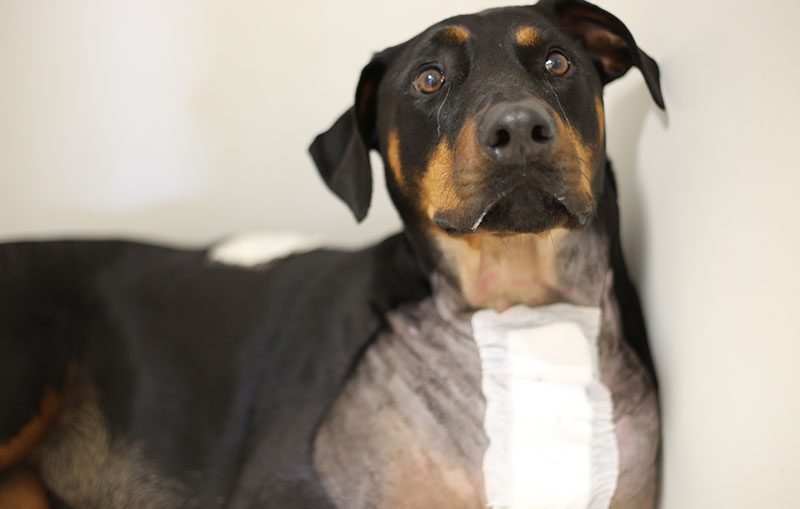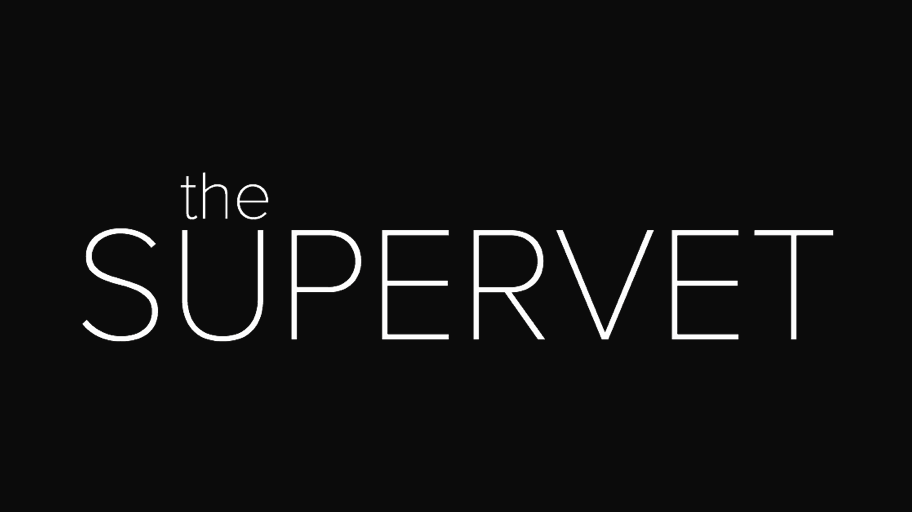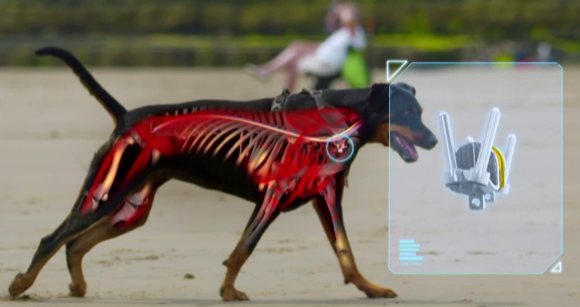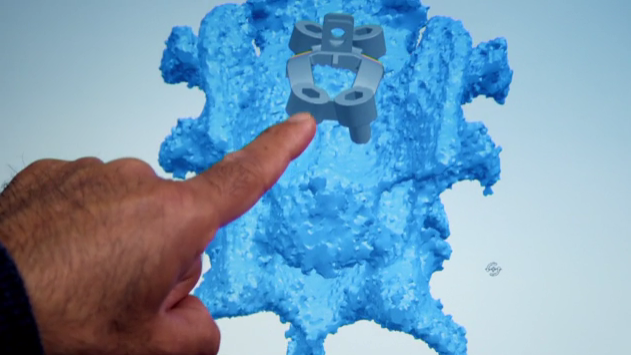5 year old Maori is a rescue Dobermann from the RSPCA. Maggs and Andy have been together 13 years.
Maori is their baby, their children have left home now and Maori means everything to them. Maori is urgently referred to Fitzpatrick Referrals after losing the use of her legs almost completely. One of the discs in Maori’s spine has become severely diseased and is pushing on the spinal cord in her neck which would eventually cause her to be paralysed.
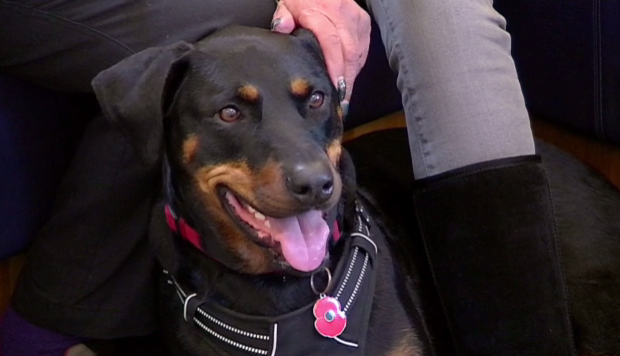
Professor Noel Fitzpatrick saw Maori immediately to begin investigations. Noel identified that Maori was affected by a condition called Disc-Associated Wobbler Syndrome (DAWS) which is common in her breed. The technical term for this condition is disc-associated cervical spondylomyelopathy. Maori was deteriorating in terms of neurological function and MRI images revealed gradual exacerbation of compression of the spinal cord in her neck. Surgical intervention was urgently required to save Maori’s life, and a special implant was custom designed in order to get her out of pain and stop her deterioration. For Andy and Maggs there was no question, they wanted to do all that was possible for her.
Noel removed the diseased disc in Maori’s neck and placed a special mobile implant to stop the compression of the spinal cord and to restore the function of the disc. The implant was custom-designed and manufactured based on her CT scans and had been invented by Noel and his colleagues. It’s called a Fitz-Disc and consists of titanium bone on-growth plates placed between the vertebrae with a dome of cobalt chromium gliding on a saucer-shaped disc of a special plastic called polyether ether ketone. The implant was anchored to the adjacent vertebrae using screws.
Post-operative imaging revealed satisfactory alignment and stability and remarkably Maori was walking well just a day after surgery!
Maori bounced back to her old self after surgery and was able to go home to rest with her family. She has now fully recovered and is able to run around without any medication.
